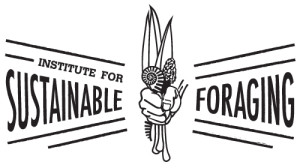THE RATIONALE
A thorough review of all activities, research and publications regarding the sustainable harvesting of ramps (wild leeks) and other foraged goods brought us quickly to the conclusion that, while there is considerable precedent for certifying timber products as sustainably harvested, there is virtually no such certification process for non-timber forest products.
Recent years have seen substantial growth in demand for and interest in foraged goods, and that growth has brought with it widespread concern at every level of the food system–among chefs, distributors, restaurant-goers, and foragers themselves—about the long-term sustainability of the forest ecosystems to which those foraged goods belong. It became clear to us that a certification program for sustainable foraging could add significant value from woods to plate by providing a way to affirm for all parties involved that the delicious foraged goods in their hands, in the pan, or on the plate were foraged in keeping with principles and standards designed to ensure their long-term viability and preserve their time-honored place in American food culture.
By choosing wild leeks as our first certified product, we are starting with a plant that stands to benefit greatly from a more sustainable harvesting paradigm. Ramps are subject to a growing trend of overharvesting in some areas of the country as a result of increased culinary demand, and many buyers are increasingly interested in understanding and verifying the methods being used to procure the product from the wild.
